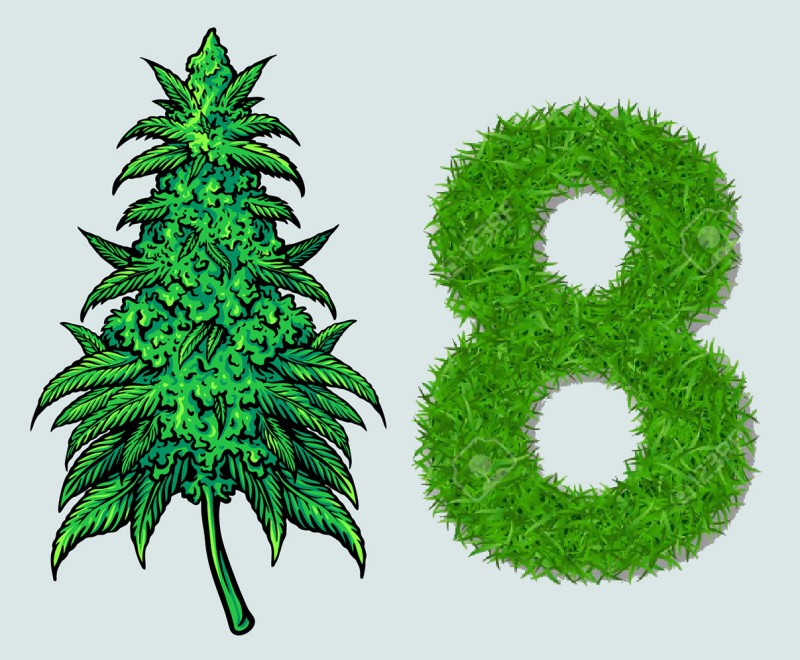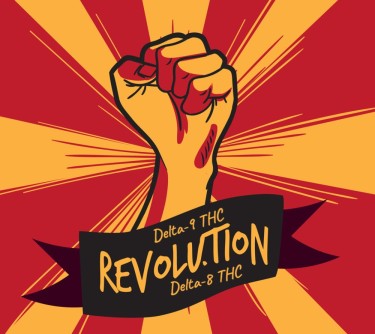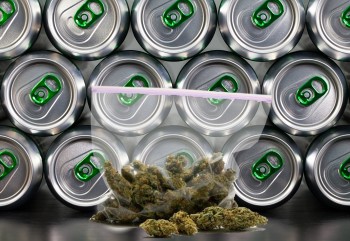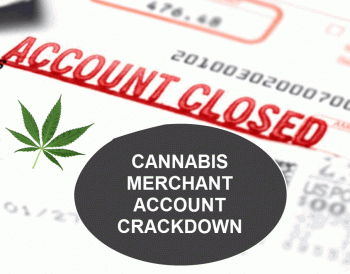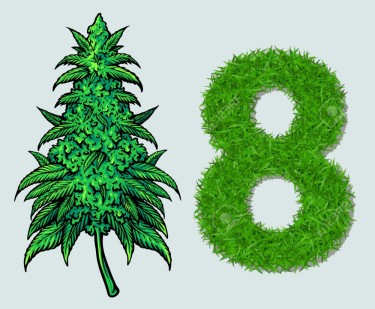
Delta-8 tetrahydrocannabinol is a hallucinogenic compound seen in the cannabis Sativa plant, of which hemp and marijuana are two varieties. Delta-8 THC is just one in over 100 cannabinoids naturally gotten from the cannabis plant, although not in significant amounts from the plant. For this reason, concentrated amounts of delta-8 THC are commonly created from hemp-derived cannabidiol (CBD).
Consumers should be informed that the FDA has not examined or authorized products containing delta-8 THC for safe use in any situation. They should be kept out of the reach of children and dogs in particular since they may be sold in ways that endanger the public's health.
Products that contain Delta-8 THC have become widely accessible in most parts of the US after the 2018 Farm Bill and later in 2020 where major products of hemp processing corporations, particularly where the use of delta-9-THC was still illegal or needed medical authorization.
According to NCBI research, there is a growing unregulated market for delta-8- THC, but there is no practical appraisal of the interest of the public in this compound.
Below are five things the FDA thinks you should know about delta-8 THC to protect those you care about and yourself from products that could pose health risks.
1. PRODUCTS WITH DELTA-8 THC ARE YET TO BE APPROVED OR EVALUATED BY THE FDA FOR SAFE CONSUMPTION AND MAY BE SOLD IN WAYS THAT ARE RISKY TO PUBLIC HEALTH.
The FDA is aware of the escalating worries regarding goods containing delta-8 THC that are now being sold offline and online. The FDA has not examined or cleared these items for safe use in any situation. Variations in product compositions and branding, the presence of other cannabinoids and terpenes, and varying delta-8 THC concentrations are some of the issues. Furthermore, some of these goods may simply be referred to as "hemp products," which may confuse customers who mistakenly believe that "hemp" means "non-psychoactive." The FDA is also worried about the rise in the number of products containing delta-8 THC that are advertised for therapeutic or medicinal uses while not having FDA approval. It is an infringement of federal law when unapproved products with unsupported therapeutic claims are sold, and since these items haven't been shown to be safe or effective, they may also put consumers in danger. Because patients and other consumers might employ them in place of medications that have been proven effective in treating severe and even fatal conditions, fraudulent marketing of untested remedies raises substantial public health issues.
2. THE FDA HAS GOTTEN NEGATIVE REPORTS OF EVENTS INVOLVING PRODUCTS CONTAINING DELTA-8 THC. It
A total of 104 negative occurrences in patients who used delta-8 THC products from December 1, 2020, to February 28, 2022.
Reports indicate that 77% of these 104 negative occurrences involved adults, about 15% did not record age, and 8% involved pediatric patients who are less than 18 years old. Another 55% required assistance (e.g., evaluation by medical services) or admission into the hospital. And 66% characterized the negative occurrences after consumption of delta-8 THC-containing food products, for example, gummies and brownies. Some of these occurrences include confusion, hallucinations, anxiety, vomiting, tremor, dizziness, and loss of consciousness.
3. DELTA-8 THC HAS HALLUCINOGENIC AND INTOXICATING EFFECTS.
Similar to delta-9 THC (i.e., the substance responsible for the "high" individuals may feel from consuming cannabis), delta-8 THC possesses psychoactive and euphoric properties. The FDA is aware of media reports claiming that products containing delta-8 THC get users "high." The FDA is especially worried because goods containing delta-8 THC likely expose consumers to significantly higher concentrations of the chemical than are found in raw hemp marijuana extracts. As a result, it is impossible to determine the level of safety for these products in people based on previous cannabis use.
4. PRODUCTS CONTAINING DELTA-8 THC USUALLY INVOLVE THE USE OF POTENTIALLY DANGEROUS CHEMICALS TO MAKE THE CONCENTRATIONS OF DELTA-8 THC CLAIMED IN THE MARKETPLACE.
Because hemp naturally contains relatively little delta-8 THC, other cannabinoids in hemp like CBD must be converted into it using extra chemicals (i.e., synthetic conversion). This process raises the following problems:
This chemical synthesis method is used by some producers to create delta-8 THC from potentially hazardous household substances. The final product's hue may be altered using additional chemicals. Due to the chemicals utilized in the procedure, the finished delta-8 THC product may contain potentially dangerous by-products (contaminants), and there is uncertainty regarding other possible contaminants that may be present or created depending on the makeup of the original raw material. These compounds, including some utilized to generate (synthesize) delta-8 THC and the byproducts produced during synthesis, can be dangerous if ingested or inhaled.
5. PRODUCTS CONTAINING DELTA-8 THC MUST BE KEPT AWAY FROM CHILDREN AND PETS.
Producers are packing and branding these delta-8 THC-infused products in manners that may get the attention of children (chocolates, candies, cookies, gummies, etc.). These products are available for purchase online, as well as at various retail stores, such as gas stations and convenience stores, where there probably aren't any age limitations on who can buy these products. There have been a lot of alerts to the poison control center affecting pediatric patients who all had been exposed to products containing delta-8 THC. In addition, poison control centers for animals have noted a quick overall growth in the accidental vulnerability of pets to these products. So, this product should be kept out of reach for children and pets.
BOTTOM LINE
NCBI found that with fewer side effects, delta-8 THC may offer many experiential advantages of delta-9 THC. Even though these investigations are hampered by the lawful statuses of both delta-8 THC and delta-9 THC, a future systematic study is required to verify participant accounts. Collaborations between the academic, governmental, and cannabis industry sectors may hasten the development of knowledge about Delta-8 THC and other cannabinoids.
The FDA clearly states that they have not yet carried out sufficient evaluation on products containing delta-8 THC and, as such, have not approved the sale or availability of such products for consumption, standing with the fact that delta-8 THC is a dangerous substance.

